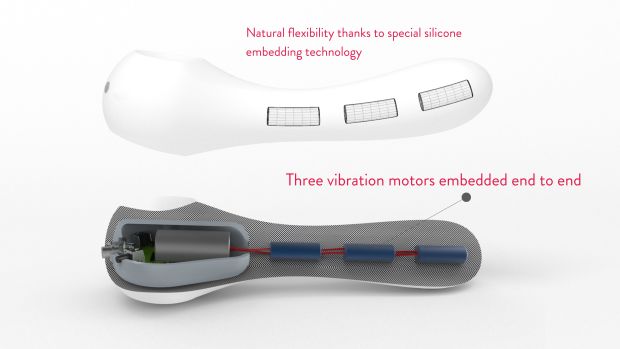
Another day, another highly advanced pleasure device on Indiegogo. This one is calledWhoop.De.Doo and comes to us from Anna Maresova, a designer in Prague.
Maresova, who studied at the Faculty of Art and Design of J. E. Purkyne University in Usti nad Labem as well as at the University of Derby, invented the system while working on her Master’s thesis, the aptly titled “A Set of Erotic Aids for Women.” She manufactured and sold her first product, Venus Balls, as an aid for Kegel improvement.
The new toy is being built by Bender Robotics in the Czech Republic and is surprisingly simple. Three built-in motors can be controlled from the base of the unit and you can set it to gently vibrate or move up and down the shaft. It was designed in conjunction with gynecologists and sexologists and is made of medical-grade silicone in the Czech Republic. Maresova, for her part, couldn’t imagine that so many people would be interested in her products.
“I was blown away by the reactions the designs were getting. It was clear I’d touched on an important topic. People of all ages, many of whom would have previously never had anything to do with sex toys, were suddenly talking and getting in touch and telling me how excited they were that I was doing this without making it look and feel like porn. There are many women in the world who want to have a sex toy but simply feel too intimidated by the prospect of buying one. And who can blame them? The sex toy market is drowning in kitsch that can be embarrassing for women to look at, let alone imagine using,” said Maresova.
The vibrator and Venus Balls combo costs $230 on Indiegogo. It’s pricey because it’s made entirely in the Czech Republic, a location not normally thought of as a hotbed of sex toy manufacturing. The team hopes to hit $100,000 to build the product.
“Only after the launch of the campaign did we fully realise that Czechs are rather liberal in comparison with other countries where human sexuality and hence sex toys are still not openly discussed topic. It would be great to change that,” said Maresova

Comments
Post a Comment